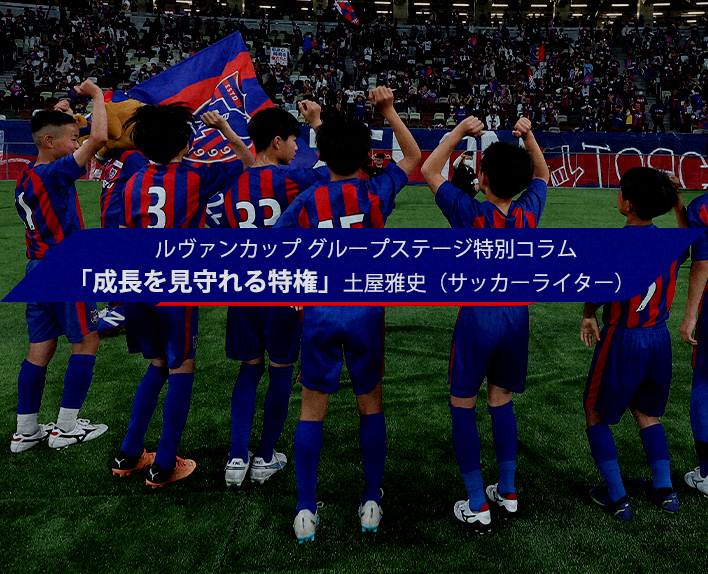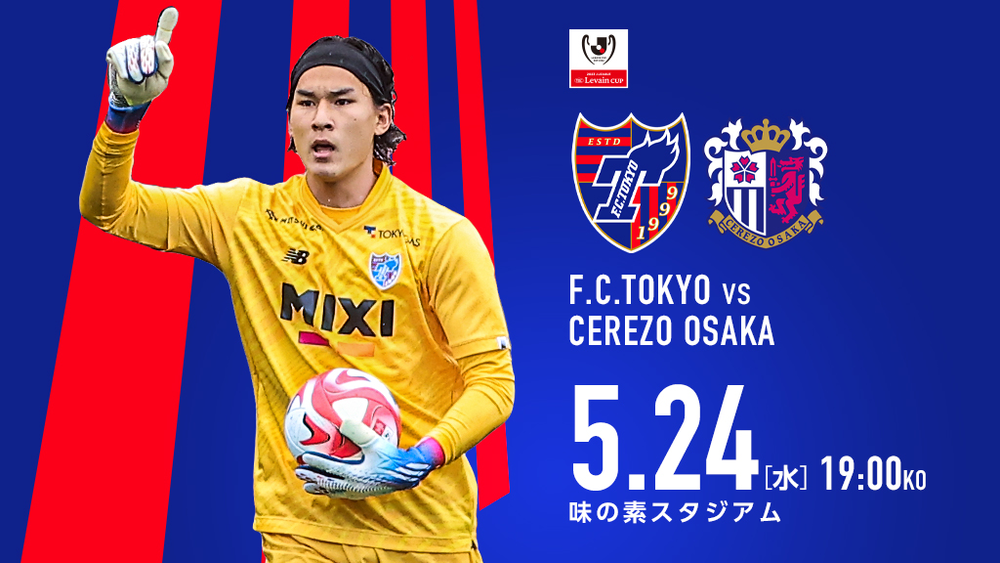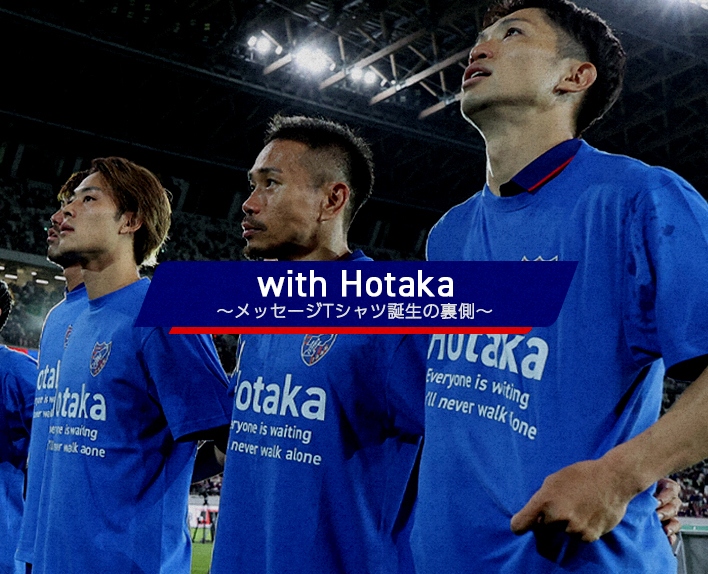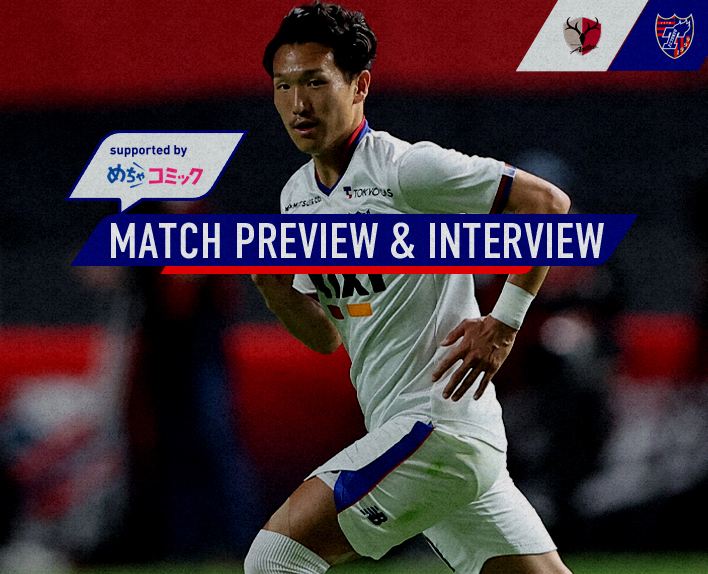When you hear FC Tokyo U-18, many scenes come to mind.
What I remember is the figure of Kentaro SHIGEMATSU (currently Gainare Tottori)
The striker, who exuded a fierce tiger-like atmosphere that aimed only for goals even as a high school student, openly expressed his dissatisfaction with a decision made in a certain match and almost confronted the referee. His teammates desperately tried to stop him. From the bench, coach Hisao KURAMATA (at that time) shouted words of advice, and from the supporters came a voice that was almost a scream, saying, "Kentaro! Stop it!" Of course, such behavior may not have been considered acceptable, but even now, I think that overflowing energy fully demonstrated the qualities necessary to become a professional soccer player.
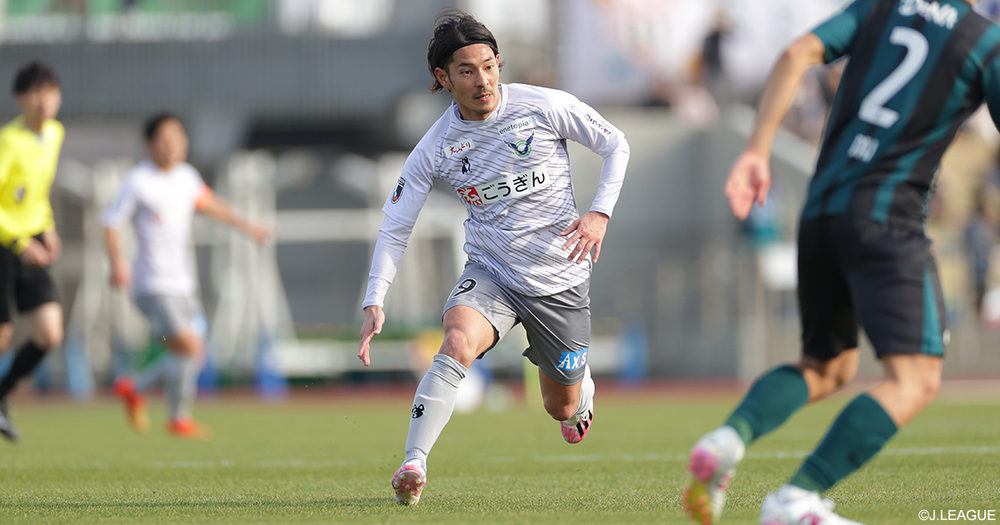
What I remember is the figure of Kento HASHIMOTO (currently SD Huesca/Spain). He was originally a forward, but in his second year of high school, he was converted into a defensive midfielder, which is still his main position. In the midfield, there were powerful "senior" players like Yoshinori MUTO (currently Vissel Kobe) and Yoji SASAKI (currently Kataller Toyama), but he fully utilized his ability to steal the ball and immediately secured a regular position. As he contributed as a key player to the runner-up finishes in the Emperor's Cup All Japan Youth and J Youth Cup, he grew into one of the top defensive midfielders in his generation. Later, he also challenged himself as a center-back at Roasso Kumamoto, but his attitude of facing the environment in front of him with full dedication was indeed suitable for a professional soccer player.
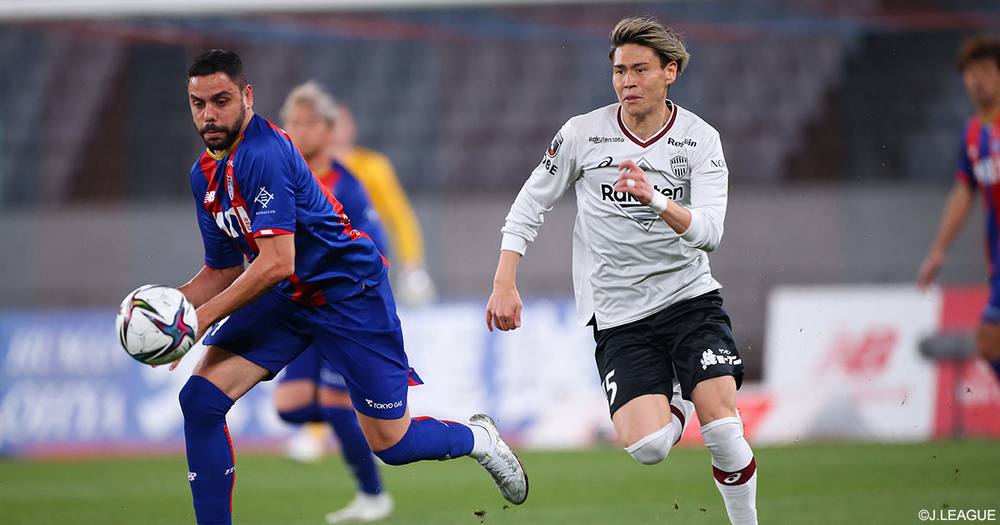
The memory that comes to mind is of Rei HIRAKAWA (currently Roasso Kumamoto). It was during a certain match where we were forced to play on a terrible pitch condition. While his teammates struggled to control the ball, he effortlessly tamed the ball as if it were magnetically attached to his spikes, and repeated his usual performance. It's an old story, but it was like Hidetoshi TAKEDA during the time of coach Philippe TROUSIER, when the Japan national team was defeated by the French national team on a muddy field, calmly holding his own against world-class opponents. He may not have achieved the desired results in Tokyo, but since joining Kumamoto on a full transfer last season, he has been thriving like a fish in water. In other words, he definitely had the skills to survive in this world as a professional football player.
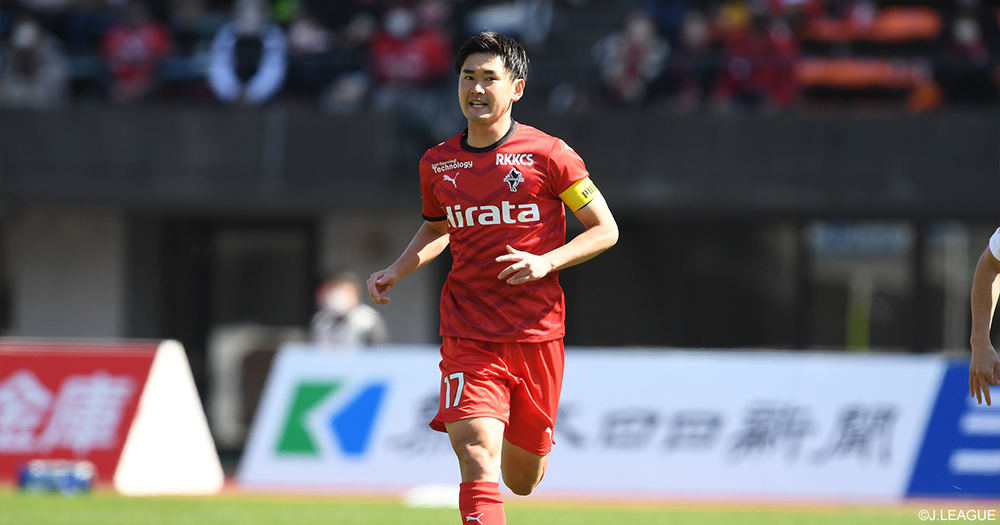
In Tokyo for the 2023 season, there are 10 players from the academy. In addition, this spring, Soma ANZAI, who is from U-15 Fukagawa and currently studying at Waseda University, has been confirmed for the 2025 season, increasing the number by one more.
The management vision that the club has set for this season is "Tokyo is on fire". As a soccer club based in the capital, we declare that we will become an entertainment chosen by the people of Tokyo. We are showing our determination and resolve both internally and externally.
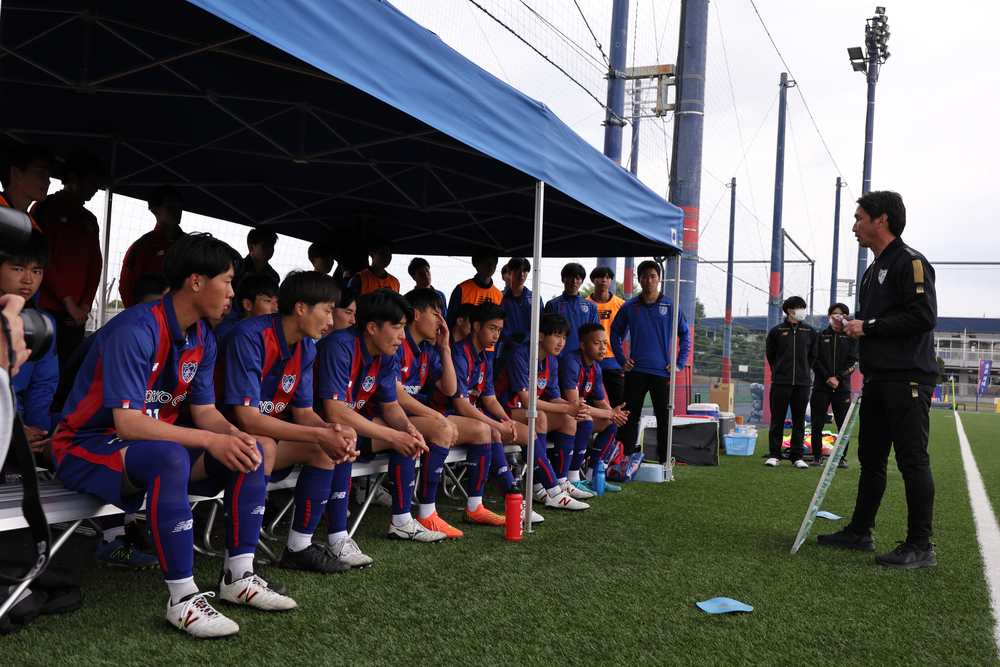
The current U-18 coach, Takashi OKUHARA, who leads the team, is the first number 10 in Tokyo. The history that Akaaka has followed overlaps perfectly with the path this man has walked. Such a legend, and now Okuhara, who is gently but firmly nurturing young talent, had spoken words that left a deep impression.
"Since the slogan 'Creating a team that excites Tokyo' came out in this capital city, we are thinking about how to embody that even in the U-18 team. The fans want to support that team and invest in it, so just saying 'I will do my best' silently might be difficult to be a part of Tokyo in the future. For example, there are players who can attract fans with their dedicated attitude, and there are players who can attract fans with very acrobatic shots. I think how to make them 'players who can get people to buy their jerseys' will become a very important element for us as the club progresses on this new path."
The memories mentioned at the beginning are directly related to "what kind of appearance can attract customers". If it's Shigematsu, it's full of aggressiveness and energy. If it's Hashimoto, it's the openness to accept the environment in front of you. And if it's Hirakawa, it's the unbelievable technique. This is also equal to the root of what weapons to use to live as a professional soccer player.
I think there was something that allowed academy graduates, who are now making a name for themselves in the current top team, to definitely be able to buy the uniform. It felt like it had been hidden since high school, and experiencing the process of it being unleashed was a great asset to me.
Kashif BANGNAGANDE had a particularly outstanding left foot kick. However, I remember that his overly gentle personality sometimes backfired, and there were times when he couldn't unleash his hidden potential for a short period. When he became a senior in U-18, then coach Tadashi NAKAMURA nominated him as the captain.
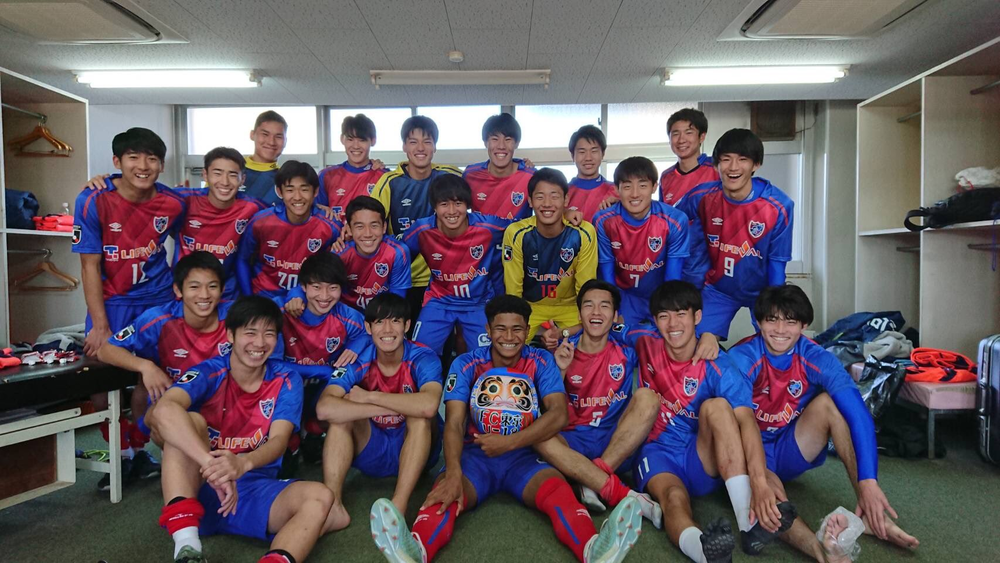
Around May of that year, I still remember clearly how he said with a downcast expression, "I don't feel like a captain within the team, and I'm still not very used to it." However, despite that, he managed to fulfill the role of captain, which was not his usual style, while also playing for the U-23 team in J3. By the end of the season, it was evident from his posture on the pitch that he had gained more confidence than before, and his level of play had definitely improved.
Now, Jean has climbed up to the Japan national team, but his cute smile that he shows from time to time has not changed at all since his high school days. For example, his eye-catching hairstyles like cornrows and silver hair must be putting pressure on himself. I can't help but look forward to how far this kind-hearted lefty will leap in the future.
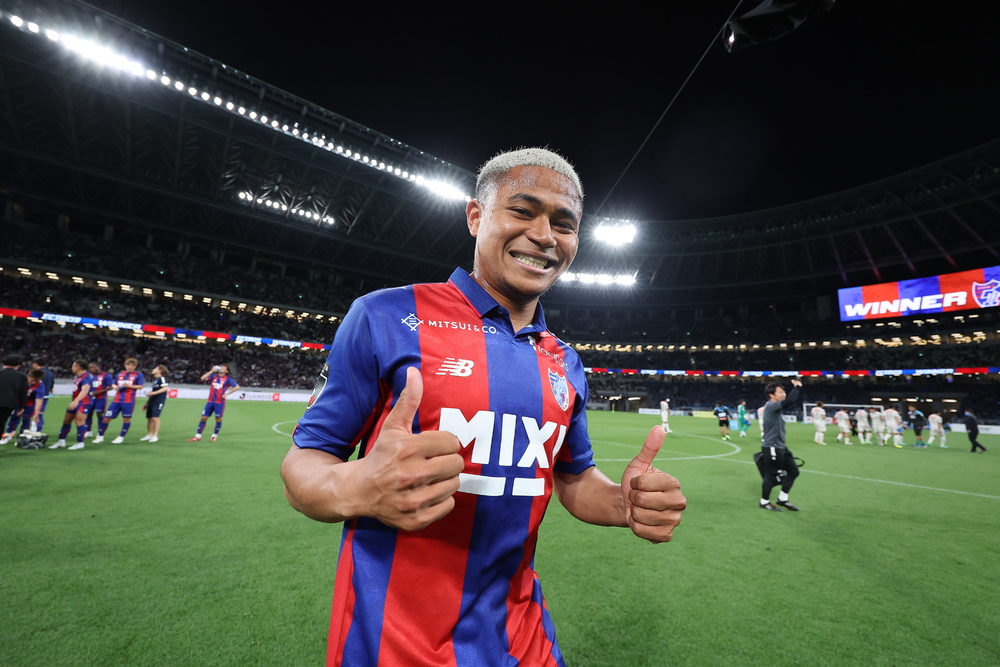
Naoki KUMATA had an aura that seemed to always cause something. However, even in the U-18, those around him couldn't quite grasp his character, and he didn't produce visible results even when he occasionally played in matches. In his second year, he started in a match against Aomori Yamada High School, which won the high school age group triple crown, but he ended without leaving any impact, and he himself tasted an indescribable humiliation.
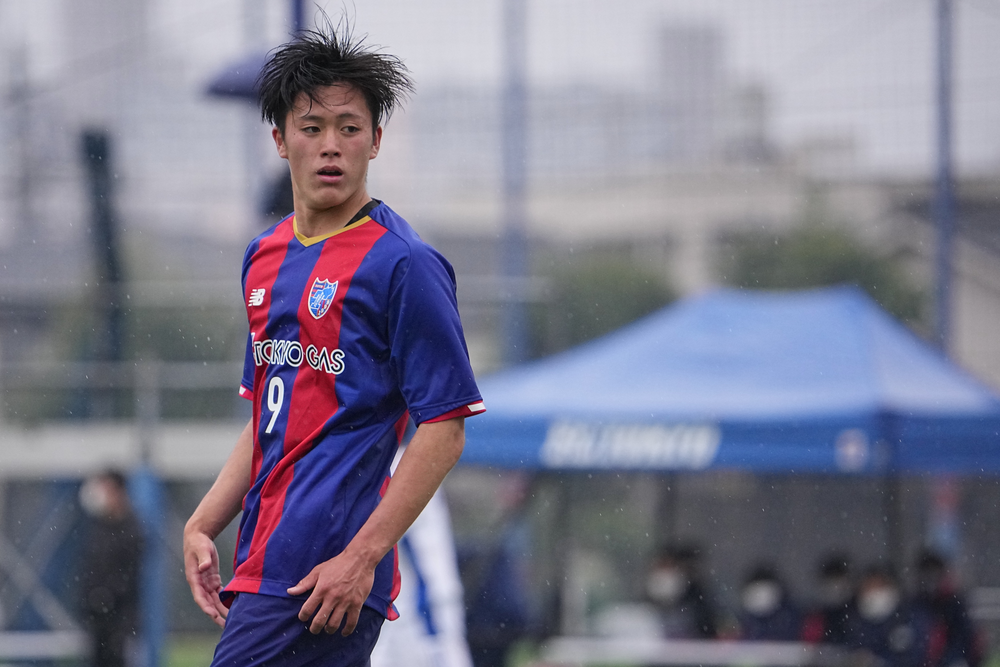
Kumada, who was about to advance to the third year, clearly saw something changing during the spring Gunma expedition. When I conveyed my impressions to Coach Okuhara, he revealed, "He is still walking a tightrope, so he may not be here next week due to competition. There were various things happening this week. Despite that, he didn't run away from practice and made it to this weekend's game."
Details are uncertain. However, on that day, Kumada did not run away and said, "I made it to this game." The numbers he left in the 2022 Premier League EAST, which started a month later, were 19 goals in 19 matches. Among them is a remarkable overhead goal. He gained the trust of his teammates and seemed to have significantly increased the sharing of emotions with his teammates. From his extremely shy personality, it is easy to imagine that he has not yet fully expressed himself even in the top team, but if he overcomes that barrier, he will quickly continue to score goals in the professional world.
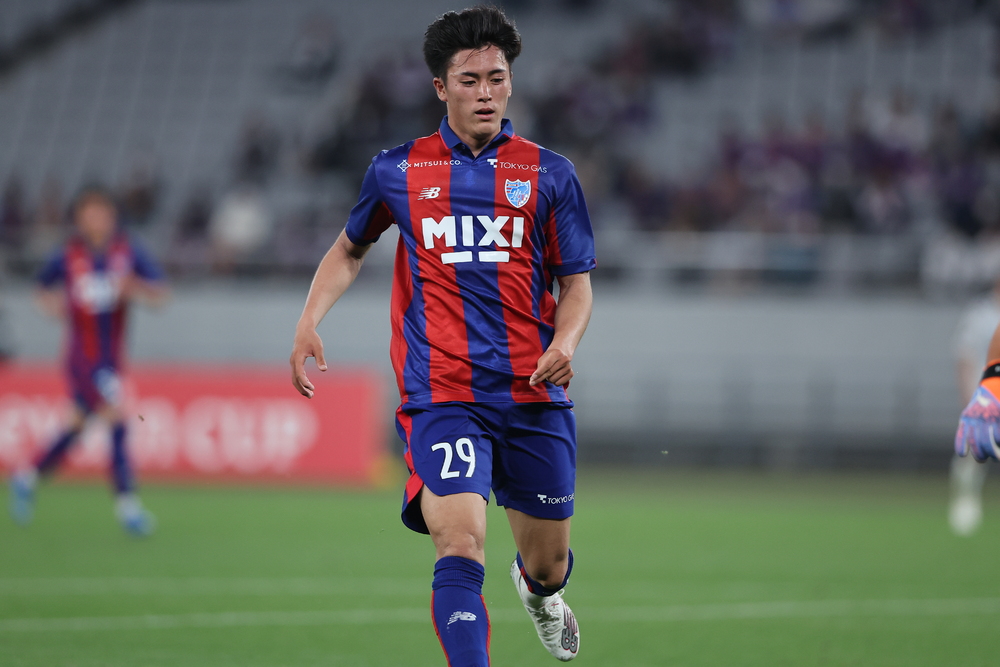
In order for Tokyo to embody "Tokyo is passionate", it is an absolute condition for academy-trained players to become "players who can buy uniforms". Shuto ABE, who scored a goal in the Tama River Clasico at the Japan National Stadium, as well as Tsubasa TERAYAMA and Kanta DOI, who have experienced being captains in their U-18 days, Taishi Brandon NOZAWA and Seiji KIMURA, who have gained experience at other clubs, Leon NOZAWA, Kota TAWARATSUMIDA, who is gaining recognition for his dribbling skills, and Renta HIGASHI, who is likely to face the challenges of being a professional, are all eagerly awaiting their breakthrough moments.
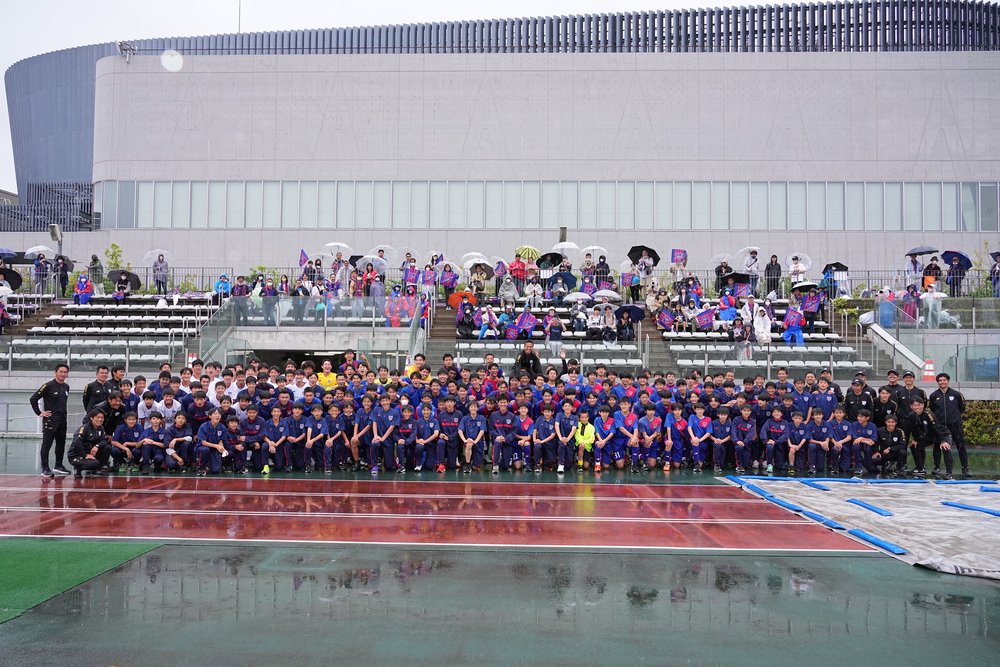
The talent that should proudly carry the blue and red is steadily blossoming in Kodaira. There is no doubt that it is the privilege of supporters to watch over the time necessary to make the beautiful flower of "something of their own" that they already have bloom in the professional world.
Text by Takashi Tsuchiya (Football Writer)
